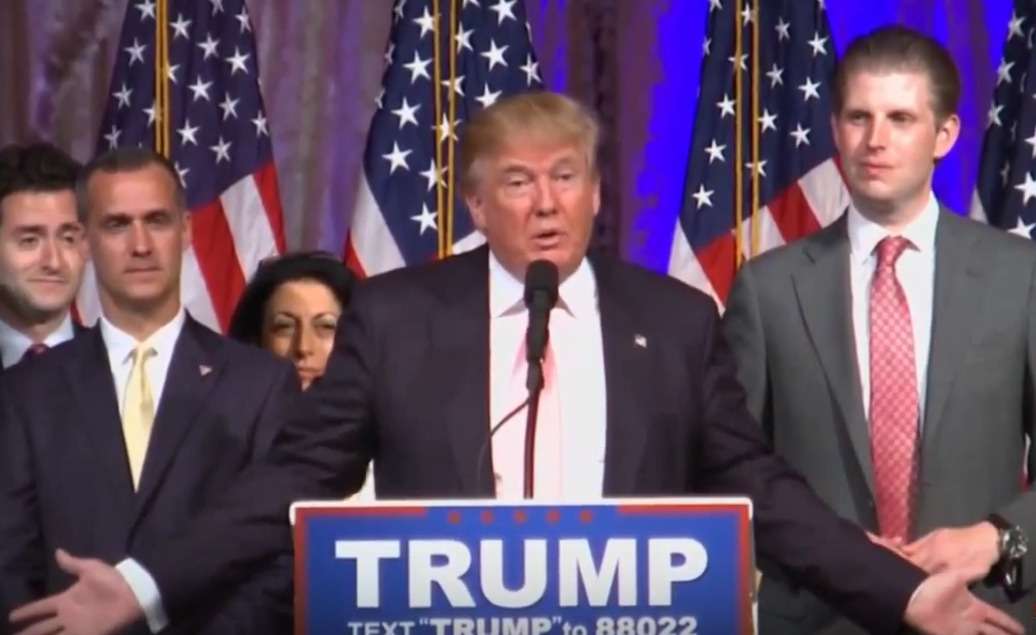Trump on His Triumph: 'I Don't Understand It. Nobody Understands It.'
Although the billionaire braggart's nomination looks increasingly likely, he is more disliked than any other presidential candidate.

Two months ago, Donald Trump, citing his resilient poll numbers, bragged that "I could stand in the middle of Fifth Avenue and shoot somebody, and I wouldn't lose any voters." Consistent with the impression that what started as a lark became an actual presidential campaign thanks to voter preferences that no one, not even Trump, foresaw, he seemed amazed at his own success. "It's, like, incredible," he remarked. Last night, after winning the Republican primaries in Florida, Illinois, North Carolina, and possibly Missouri, Trump sounded even more baffled, noting that a wave of attack ads in Florida did not affect his standing there. "You explain it to me, because I can't," he said to supporters at a "press conference" where he took no questions. "My numbers went up. I don't understand it. Nobody understands it."
I don't really understand it either, although I think the panic within the Republican Party is pretty damned funny. No matter how you look at it—as a reflection on Republican candidates, Republican ideas, or Republican voters—Trump's success is humiliating to the GOP, especially because the man is clearly no political genius. To take just one conspicuous example, his weird waffling on David Duke and the KKK—repudiating them one day, claiming to be unfamiliar with them two days later, then repudiating them again five days after that—was anything but artful, even if you think Trump was trying to wink at white supremacists.
But even as Trump's nomination looks increasingly likely, he continues to face a problem that Nick Gillespie noted last month: Most voters do not like him. The same is true of Hillary Clinton, the presumptive Democratic nominee, but to a lesser extent. According to the latest Gallup numbers, 63 percent of American adults have an unfavorable view of Trump. The corresponding number for Clinton is 53 percent. The New York Times reports that "historians and strategists struggled to recall a time when more than half the country has held such stubbornly low opinions of the leading figures in the Democratic and Republican Parties." As the Times notes, these high negative ratings have been persistent and are apt to remain so, since Trump and Clinton both have been in the public eye for decades and are therefore quite familiar to voters. It's not as if Americans will learn to like either of them more through greater exposure. If anything, the opposite might be true.
Contrary to Trump's claims, almost all recent polls have Clinton beating him in the general election, with margins ranging from five to 13 points. By contrast, Ted Cruz—whose latest unfavorability rating is 50 percent, substantially lower than Trump's and somewhat lower than Clinton's—beats Clinton in those same polls, albeit by narrow margins, ranging from one to three points. It's pretty striking that Trump and Clinton manage to be less popular than the notoriously abrasive Cruz, who is widely reviled by his Senate colleagues. And it would highly unusual, if not unprecedented, for the nominees of both major parties to be viewed unfavorably by most voters. Fellow Americans, welcome to my world.


Show Comments (59)